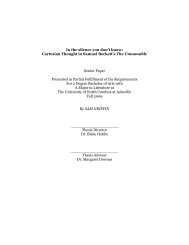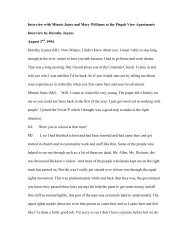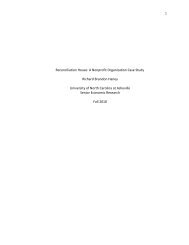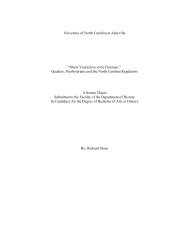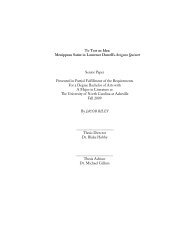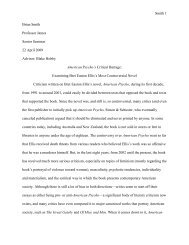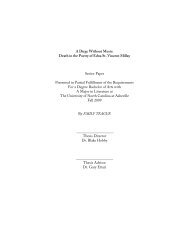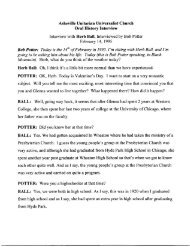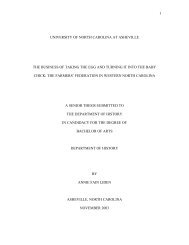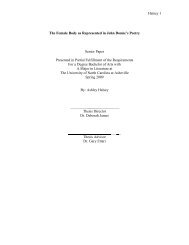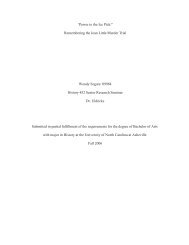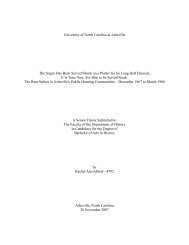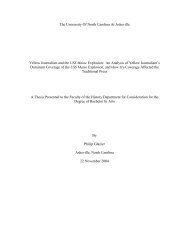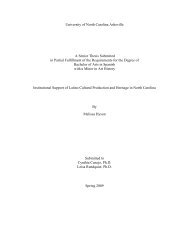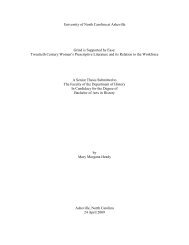Mark Twain's Writing During his Last Twenty Years: The Conflicts of ...
Mark Twain's Writing During his Last Twenty Years: The Conflicts of ...
Mark Twain's Writing During his Last Twenty Years: The Conflicts of ...
Create successful ePaper yourself
Turn your PDF publications into a flip-book with our unique Google optimized e-Paper software.
Arghiere 12<br />
responsible for their character or behavior. In <strong>his</strong> book <strong>Mark</strong> Twain: <strong>The</strong> Fate <strong>of</strong> Humor, James<br />
Cox comments that such a conflict does in fact exist in Twain’s writing:<br />
He is never able to integrate the two concepts. For the Moral Sense has to do<br />
with man’s pride, folly, and self-deception, whereas the deterministic thesis rests<br />
upon the undefined concept <strong>of</strong> a ‘first’ act which determines the rest <strong>of</strong> man’s<br />
existence. <strong>The</strong> Moral Sense is calculated to expose the folly <strong>of</strong> man; the<br />
deterministic thesis, on the other hand, must—if it is to be effective—be the plot<br />
<strong>of</strong> God. (280-81)<br />
Though one can gather from many <strong>of</strong> Twain’s remarks that he places blame on the human race,<br />
Twain seems to disapprove <strong>of</strong>, rather than blame, human beings for their immoral acts and<br />
feelings <strong>of</strong> pride. Indeed, he writes in a 1904 letter to Twichell, “I wish I could learn to<br />
remember that it is unjust and dishonorable to put blame upon the human race for any <strong>of</strong> its<br />
acts” (Messent 396). Twain’s contempt, it seems, is not for humans themselves, who as he writes<br />
“originate nothing,” but rather for their odious pride and “shameful” moral sense, cultivated in<br />
them entirely from the outside.<br />
Although Twain’s remarks on human pride and on the moral sense do not in fact seem to<br />
conflict with <strong>his</strong> deterministic obsessions, <strong>his</strong> suggestion, in What Is Man?, the human race seek<br />
moral improvement appears problematic for <strong>his</strong> theory. In What Is Man?, Twain, who earlier<br />
states that the human mind “is worked solely from the outside,” (338) includes a “plan for the<br />
general betterment <strong>of</strong> the race’s condition:” “Diligently train your ideals upward and still upward<br />
toward a summit where you will find your chiefest pleasure in conduct which, while contenting<br />
you, will be sure to confer benefits upon your neighbor and the community” (367). T<strong>his</strong> code<br />
would seem difficult for the human race to carry out, as Twain is clear and consistent in <strong>his</strong>



